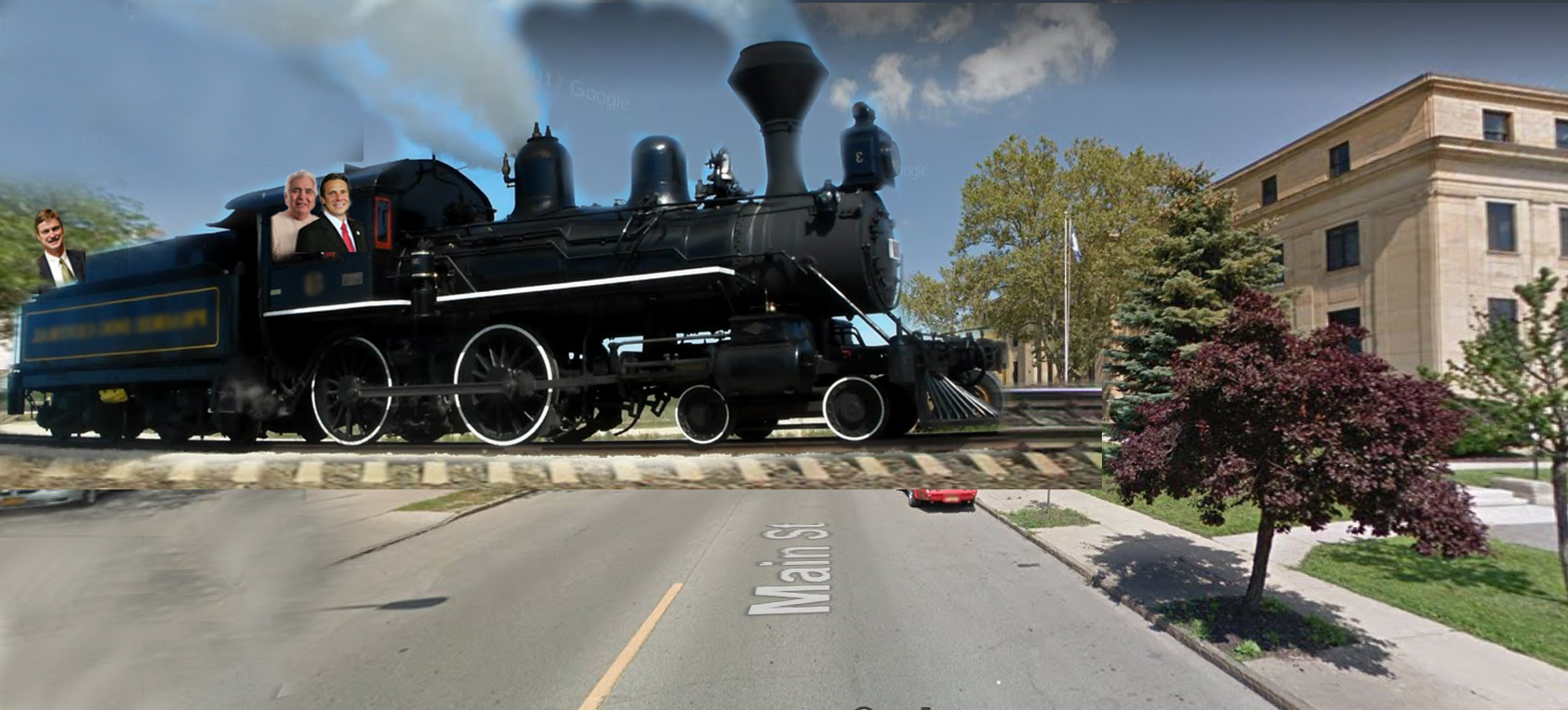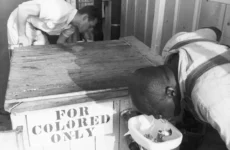Please click the link below to subscribe to a FREE PDF version of each print edition of the Niagara Reporter
http://eepurl.com/dnsYM9
By: Tony Farina
Analysis
With no casino cash next year, dwindling reserves, and disagreement among elected officials on how to close a projected $14-million budget shortfall, Niagara Falls is facing a potential financial train wreck that is gaining speed with each passing day.
Councilmember Kenny Tompkins, who is among lawmakers not yet sold on a garbage user fee to raise $3.1 million to help close the deficit next year along with a $12.3 million loan from the state, concedes “yes, the train is definitely out there running.”
Tompkins says Mayor Paul Dyster’s team is all out to convince wary lawmakers about the need for a $168 garbage user fee with only Chairman Andrew Touma on board as of this writing. At least three of the five city councilmembers must vote to even schedule a public hearing on the user fee to even consider enacting the new revenue stream to the sinking city, and after this week, there will only be two more council meetings before the budget deadline of Dec. 1. Time is growing very short.
“I need more information,” says Tompkins. “They tell me I’ll get the information but as of yet, I don’t have it. The mayor has proposed a budget that includes a garbage user fee that is not yet approved and a loan from the state on a promise from the governor, assuming he gets re-elected. What about 2020?”
Councilmember Chris Voccio is also wary of the garbage user fee, suggesting the city needs to look at cutting expenses while Touma says the user fee, as it does in neighboring communities, could help provide the recurring revenue stream the city sorely needs with the uncertainty over the slot revenue returning any time soon, if ever.
All this wrangling over dealing with the crisis is playing out as the Seneca Nation and the state prepare for arbitration in December over the Senecas’ refusal to pay any more slot revenue to the state saying it is no longer required under the compact, with the last payment coming in mid-2017.
Under the compact, the payments to the state ended in 2016 and the Seneca Nation’s new president, with the election on the same day as the state’s, will likely stay the course and go to arbitration. The next Seneca president is expected to be Ricky Armstrong and sources say he will likely continue the current Seneca opposition to paying any more money to the state.
Meanwhile, we have been told by sources close to the Senecas that the state has missed at least one filing deadline on the December arbitration, suggesting there’s more interest in the governor’s re-election efforts than the gaming crisis gripping Niagara Falls. The governor’s press office did not respond to questions about missing a filing deadline or anything else about the arbitration.
If Cuomo wins re-election next month as expected and returns to power for a fourth term as the new Seneca president takes over, it will be a likely battle for control of that speeding train heading to Niagara Falls with the fate of the city hanging in the balance.
Meanwhile, Niagara Falls is fighting for survival against overwhelming odds, much of it the result of using casino cash to balance budgets for the last four years, money that is no longer available and may never be available again.
Touma makes a strong argument for the garbage user fee at this point as the high degree of uncertainty over the arbitration outcome makes it paramount for Niagara Falls to find a way to cut costs and increase revenue, and a recurring revenue stream seems like it is needed.
Nothing short of a state victory at arbitration will make Niagara Falls whole again without enormous sacrifice all around. As Cuomo and the Seneca president fight for the wheel of that speeding train, Niagara Falls braces for the hit.
All of this comes with a looming mayoral election next year. Stay tuned!





















